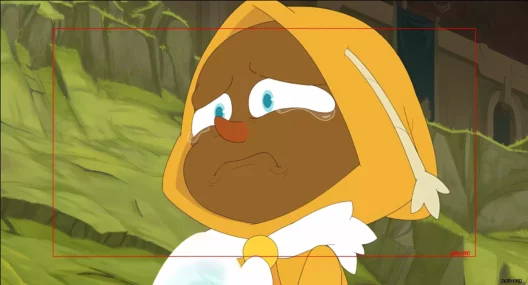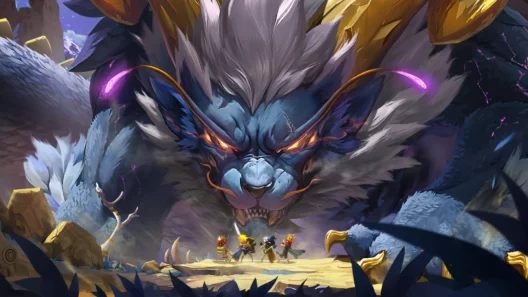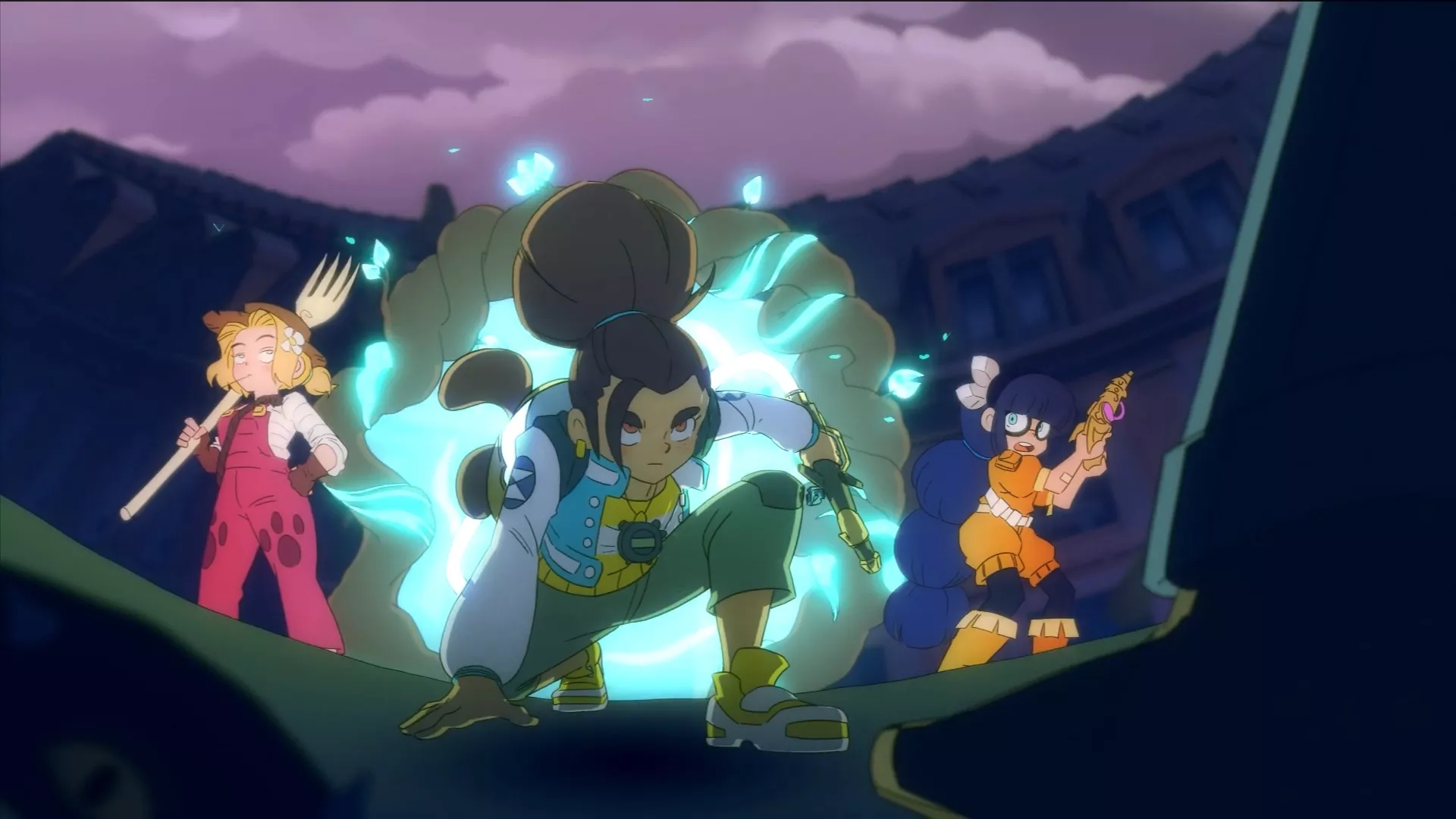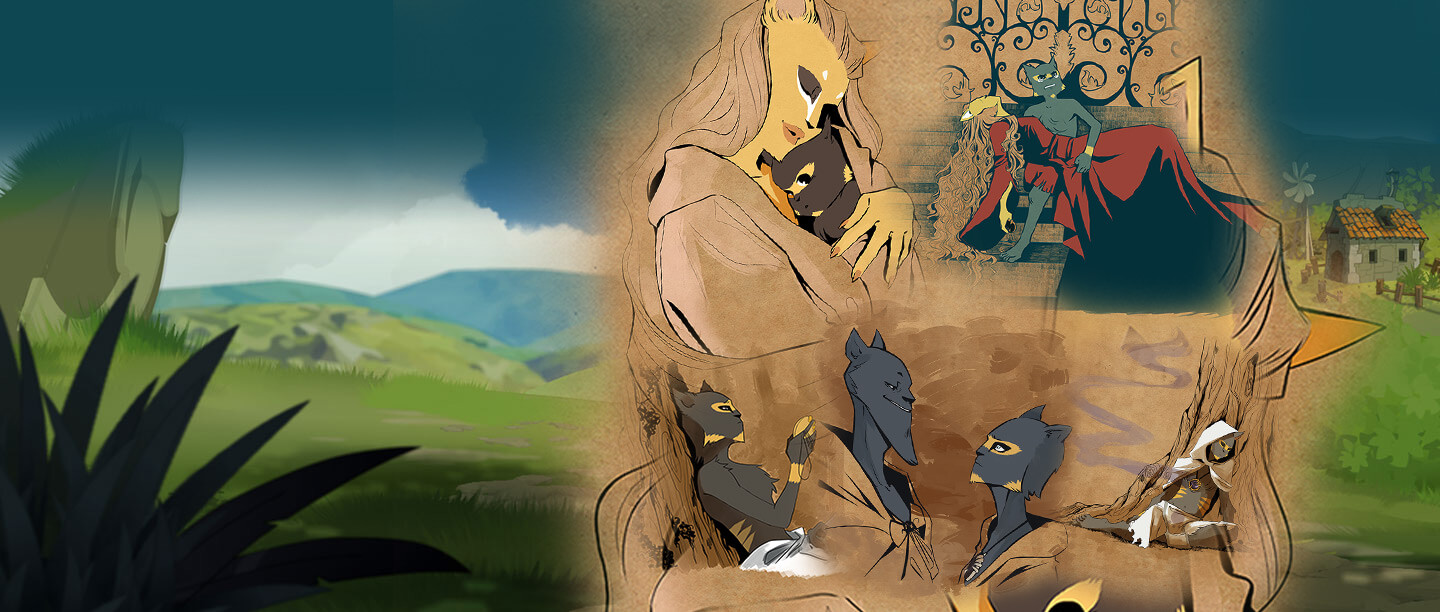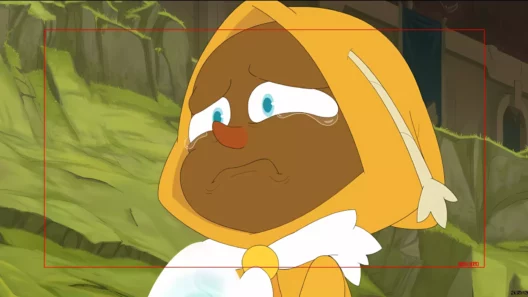The Breton dream of video games shattered on October 10, 2025. Blue Banshee, a young independent studio based in Auray, Morbihan, was placed in judicial liquidation by the Lorient Commercial Court. This decision marks the end of a three-year adventure for the studio, driven by recognized talent and supported by Ankama. Nine employees now find themselves unemployed, victims of disastrous timing, the lack of marketing support from their publisher Ankama, and a deep crisis in the video game industry since 2023.
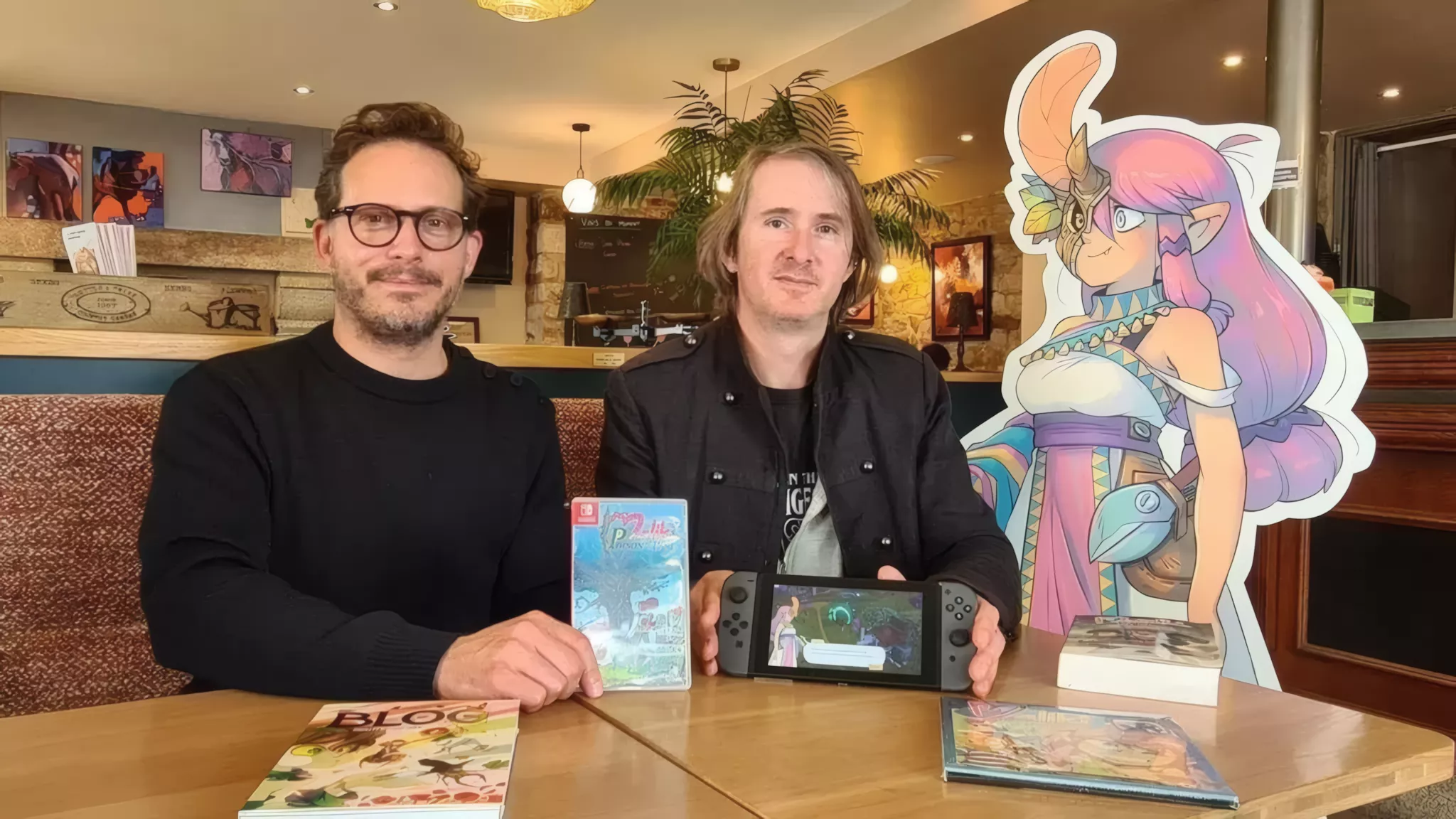
Founded on March 1, 2022, with capital of €300,000, Blue Banshee was the result of a collaboration between three key figures. Étienne Jacquemain, game designer and creative director based in Ploemel, brought his expertise in video game development. Alongside him, David Kubacki, better known as Souillon, creator of the famous comic Maliki since 2004, served as art director. The third partner was none other than Ankama.
Souillon himself had worked at Ankama as a character designer for the video game Dofus before moving on to the animated series Wakfu. The Maliki comics, published by Ankama Éditions since 2007, had sold over 300,000 copies worldwide.
Maliki: Poison of the Past, a first game welcomed with enthusiasm but disappointing sales
Blue Banshee Studio had focused all its efforts on developing Maliki: Poison of the Past, a narrative turn-based RPG inspired by the eponymous comic. The game, developed over three years, was finally released on April 22, 2025, on PC via Steam and Nintendo Switch, the latter benefiting from console exclusivity.
The world of Maliki was not unknown to the public. Created in 2004, this humorous and autobiographical webcomic by Souillon had already won over a loyal community. The eight volumes of the comic series, published by Ankama Éditions, had demonstrated the public’s attachment to the character of Maliki, a young woman with pink hair accompanied by her cats Fëanor and Luma.
The game offers an original mechanic centered on time manipulation, allowing players to create strategic combos by sending characters into the past or future. The adventure follows Sand, a young woman thrust into an epic conflict against Poison, a plant creature threatening humanity across space-time. The game’s technical and artistic execution benefited from a soundtrack composed by Starrysky and renowned Japanese composer Motoi Sakuraba.
Despite generally positive critical reception with an average score of 76% and enthusiastic reviews, commercial sales did not follow. According to Étienne Jacquemain, “There were pre-orders amounting to €480,000 including merchandise, but very, very few sales after the game’s release.” This pre-order campaign via the French platform KuneKune had generated significant excitement with 7,300 pre-orders and 5,357 participants, raising hopes for reasonable commercial success for a studio of this size.
The timing of the release proved disastrous for Blue Banshee. On April 22, 2025, the launch day of Maliki: Poison of the Past, two other major productions overshadowed the visibility of the small Breton studio. “It’s a small game that was released at the same time as two big productions,” explains Étienne Jacquemain in his interview with Le Télégramme.
On one hand, Oblivion, a remake of an old cult role-playing game, was released the same day in what the industry calls a “shadow drop” – an unannounced surprise release. On the other hand, Clair Obscur: Expedition 33 also launched on that date and “was a huge hit,” according to the co-founder. “It was very tough; we released on the same day as Clair Obscur: Expedition 33, which was a huge hit. It’s not the same type of game; it’s a big production, but it’s kind of the same audience…” Étienne Jacquemain told Ouest-France. This direct competition with productions boasting much larger marketing budgets proved fatal: “It contributed to crushing our visibility even more.”
Another aggravating factor, perhaps the most revealing, was the attitude of the publisher. “Our publisher Ankama did not allocate a marketing budget; they didn’t really believe in it,” Étienne Jacquemain bitterly admits. This lack of marketing support from a major shareholder, directly involved in Blue Banshee’s capital, clearly weighed heavily on the game’s commercial failure. This revelation raises questions about the true nature of Ankama’s commitment to the project: was it merely a precautionary investment or a genuine desire to lead the studio to success?
The liquidation of Blue Banshee is unfortunately not an isolated case. The Breton studio is one of many victims of a deep crisis that has shaken the video game industry since 2023. This crisis, described as a “massacre” by Étienne Jacquemain, has its roots in the explosion and subsequent bursting of the post-Covid speculative bubble. Lockdowns led to a surge in gaming time and a massive influx of new players. This euphoria attracted considerable investment; studios hired en masse, and many projects were launched, anticipating sustained high demand.
The French video game industry has not been spared by this wave of layoffs and closures. The Parisian studio Don’t Nod, creator of the famous Life is Strange series and considered one of the jewels of French video games, announced in October 2024 a layoff plan targeting 69 jobs, or 20% of its total workforce. This decision follows disappointing sales of its latest productions, Jusant and Banishers: Ghosts of New Eden, which caused revenue to drop from €7 million in 2022 to just €5.4 million in 2023.
In Montpellier, the small studio Artisan Studios, which employed seventeen people, filed for judicial recovery on December 16, 2024, after several months without paying salaries. “It’s a descent into hell,” a employee told Mediapart. In April 2024, the Lyon-based studio Mi-Clos ceased operations after ten years, leaving about thirty employees jobless.
This widespread crisis has profoundly changed the behavior of publishers and investors. “Investors are very cautious about the video game market; many studios have closed in the past two years,” explains Étienne Jacquemain. The requirements for independent studios seeking to finance their projects have drastically tightened. Blue Banshee experienced this bitterly. After the release of Maliki, the studio was working on a second in-house project and had created “a demo, a prototype, a pitch that we presented to many publishers” in the United States, Great Britain, and Korea. The feedback was encouraging: “We got a lot of positive feedback from publishers who found it very beautiful, interesting, and original,” recalls Étienne Jacquemain.
But these compliments never translated into funding. “The problem is that the gaming industry is in a pretty deep crisis,” he explains. Financing conditions have radically changed: “Whereas four years ago, we could have gotten our project funded based on a paper concept and a few nice images, now publishers want us to go almost all the way to completion.”
This shift puts independent studios in an untenable position. “Publishers are asking studios like ours to create a playable demo with two-thirds of the development done, whereas two years ago, we could get the project funded. The prototype is no longer enough, but we don’t have the means,” laments Étienne Jacquemain. In other words, publishers now demand that studios bear most of the financial risk before considering any investment. “They basically want companies to bear all the risks. For us, it was too much financially,” he concludes.
A sudden fall: from payment cessation to liquidation
Faced with the commercial failure of Maliki and the inability to finance their second project, Blue Banshee quickly found itself in financial difficulty. “Things went downhill pretty quickly in a few months,” summarizes Étienne Jacquemain. The date of payment cessation was provisionally set to August 21, 2025 by the Lorient Commercial Court.
Less than two months later, on Friday, October 10, 2025, the Lorient Commercial Court pronounced the opening of judicial liquidation proceedings against Blue Banshee SAS. The judgment states that the company “is in a state of payment cessation and any recovery appears manifestly impossible.” This liquidation was requested by the studio itself, which had filed its application with the court. The legal representative of Blue Banshee and the employee representative were heard during the hearing on October 10, 2025.
At the time of liquidation, Blue Banshee had nine employees, most working remotely, spread across France and Belgium. The studio had employed up to twenty people at its peak. All these employees were laid off. “It’s very disappointing and very frustrating because we really built a great team, extremely competent and enthusiastic people; it’s always heartbreaking to have to end this,” confides Étienne Jacquemain.
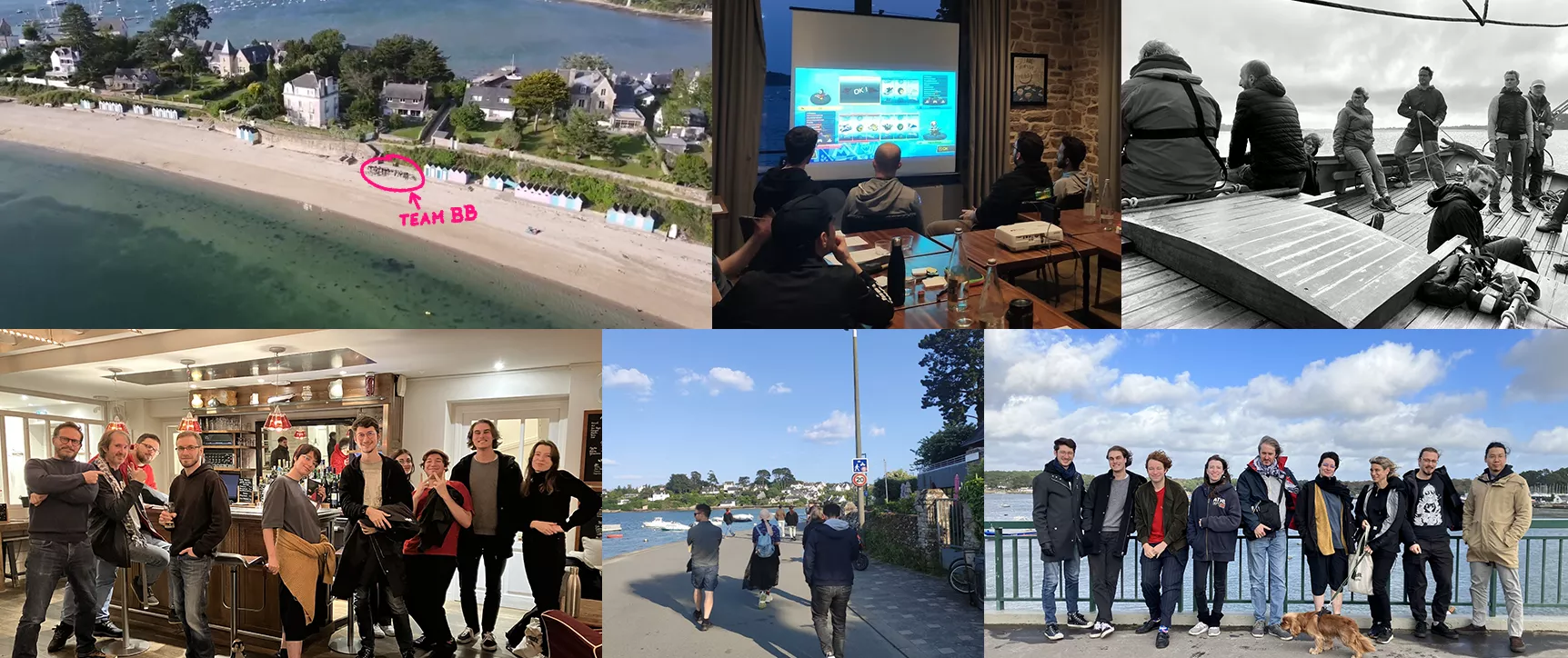
The relationship between Blue Banshee and Ankama deserves special attention, as it illustrates the complexities and ambiguities of the relationships between independent studios and major publishers. Ankama was both a shareholder in Blue Banshee (as general manager alongside David Kubacki) and the exclusive publisher of the game Maliki: Poison of the Past. This dual role could have been a decisive advantage for the young studio.
Yet, this proximity clearly was not enough to save Blue Banshee. The lack of a marketing budget allocated by Ankama for the release of Maliki: Poison of the Past was explicitly pointed out by Étienne Jacquemain: “And our publisher Ankama did not allocate a marketing budget; they didn’t really believe in it.” This lack of support suggests that Ankama may not have had sufficient confidence in the commercial potential of the title, or that it preferred to focus its resources on other projects deemed more strategic.
It is important to note that “this has no impact on the other shareholders (the SARL Playerone and the SAS Ankama),” as Étienne Jacquemain clarified during the liquidation announcement. The legal structure of Blue Banshee, as a simplified joint-stock company (SAS), limits the liability of shareholders to the amount of their contributions. Ankama and Playerone are therefore not required to repay the debts of the liquidated company beyond their €300,000 capital contribution.
This situation raises questions about the nature of Ankama’s involvement in Blue Banshee: was it a genuine strategic investment with a desire for success, or rather a precautionary stake, allowing Ankama to keep an eye on a project related to one of its intellectual properties (Maliki) while limiting its financial and marketing commitment?
Despite the pain of this failure, Étienne Jacquemain tries to maintain perspective. “We remain very proud of the project,” he states in Ouest-France. He emphasizes the work accomplished: “It was a three-year adventure; we had to structure the team, launch the project, a lot of difficult work that ends in a fizzle… It’s very disappointing and very frustrating.”
But he also places the liquidation of Blue Banshee in the broader context of the sectoral crisis: “Unfortunately, we are not the only ones this is happening to; it’s not a very exceptional situation in the industry at the moment.” This lucidity does not erase the bitterness. “It’s quite complicated; you have to apply in industries that are looking towards serious gaming, gamification, or game design, where there are the most opportunities. For artists, it’s also a bit complicated,” he explains, discussing the prospects for his team.
As for the co-founder’s personal future, he remains open: “The option for me is to find a creative job in the industry. And if opportunities arise to start a studio again, why not? But I don’t want to do the same thing twice.”
Despite the judicial liquidation of Blue Banshee, Maliki: Poison of the Past remains available for purchase on Steam, the Nintendo eShop, and the Ankama Launcher. This may seem surprising at first glance, but it is explained by the very nature of the game. Unlike many modern games requiring online servers to function, Maliki: Poison of the Past is a complete solo experience that does not depend on any server to be played. This technical architecture ensures that players who purchase the game today will be able to play it indefinitely, without the risk of their purchase becoming unusable due to the shutdown of online servers.
No corrective updates, bug patches, or improvements are to be expected. The game remains frozen in its current version. For players, this means they are purchasing the game in its final state, as it was at the time of Blue Banshee’s liquidation. Any technical issues encountered will likely not be resolved, as there is no development team left to address them.


